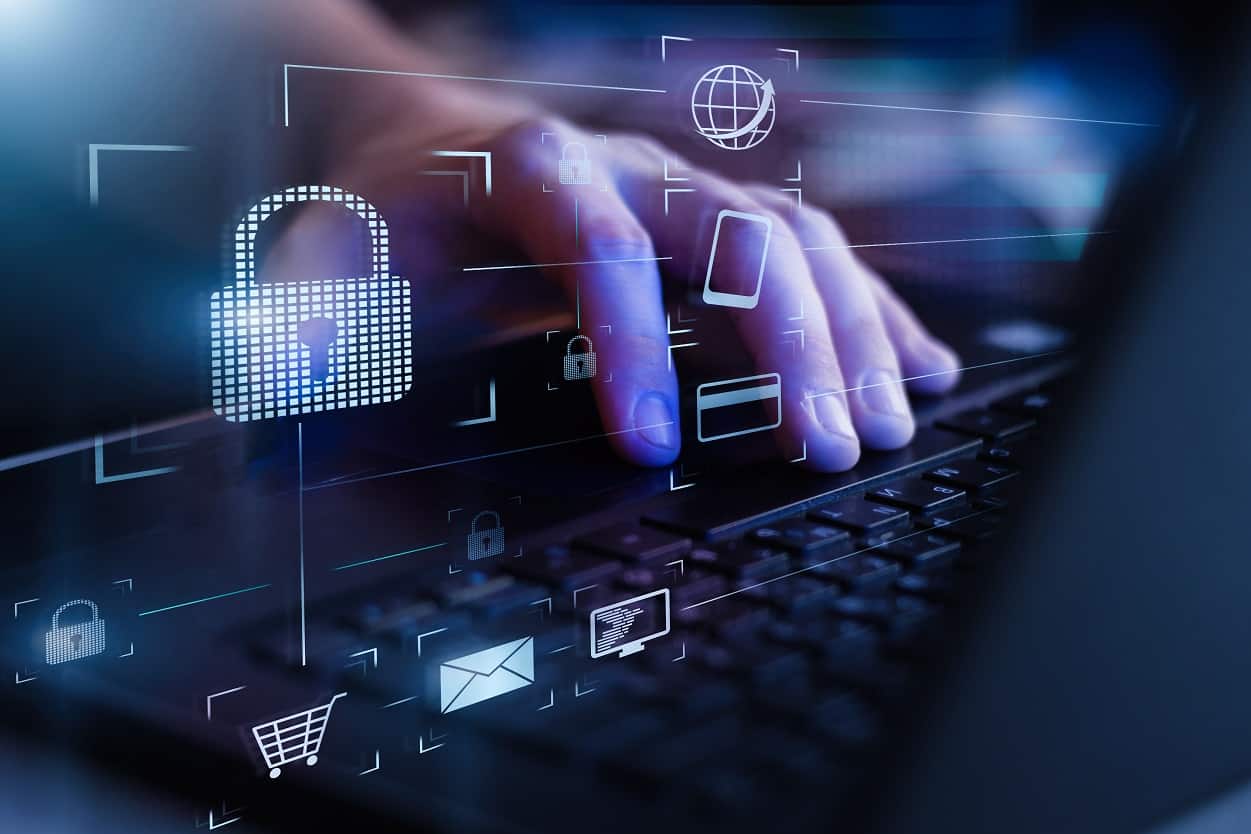When your computer starts slowing down, closing programs abruptly, or deleting files, it could be under attack from a virus or malware. In the event that your computer is infected, you may lose valuable data and files relating to your business or personal life. Malicious attacks can even steal information like your identity or credit card information.
The continued rise of people working from home has led to an increased need to protect computers. Staff must manage their technology themselves, without an in-office IT support team to assist them. To protect your computer from a virus, here are five tips to implement:
1. Beware Of Possible Virus Sources
To effectively prevent viruses from infiltrating your computer, you should be wary of their sources. Understanding how computer viruses can be contracted will help you to avoid them.
Some of the most common vulnerable areas area:
- Email attachments: Emails from unknown sources can be used to attack your computer. They are usually relegated to the spam folder as a precautionary measure by your email server, when suspicious contents are detected. As a user, avoiding opening attachments or links from unknown senders is a great first step in protecting yourself.
- Pop-ups: Pop-ups are common while browsing on the internet—particularly when you’re on unencrypted websites. They direct users to links that, when clicked, can infect your computer with viruses. They can also cause multiple tabs to open, which become difficult to close.
Hackers use email attachments and pop-ups for a variety of reasons, including to phish personal information and infect other computers with viruses. You can force-close such links or pop-ups using your computer’s in-built task manager. Additionally, installing pop-up blockers can help prevent problematic popups—useful sites can be given individual permission to send important notifications.
2. Use Antivirus Programs
Antivirus software aims to prevent, uncover, and remove harmful programs from your computer. Typically, these programs will scan your device, including downloads and applications, and compare the data to that of known malware, spyware, and ransomware.
For those with low budgets, a basic free program can improve the security of your computer. However, the best antivirus protection software offers premium defense, with features such as frequent updates, real-time scans, and extra protection in various apps like email and social media.
To maintain your computer’s security, any antivirus software you choose must be regularly updated to eliminate bugs, errors, and offer protection against new threats.

3. Utilize In-built Security Features
Viruses attack the integrity of data management systems and disk storage. New threats are emerging all the time; while antivirus programs are important, they’re not infallible. If a virus bypasses antivirus programs, extra checks and security measures can prevent attacks.
Some of these include:
- Passwords: Strong passwords create an extra layer of protection. It’s recommended you mix symbols, numbers, and letters—both lower and uppercase. Using the same login credentials for multiple online sites makes it easy for hackers to decode, thus this should be avoided. Dates, pet names, and parts of your name should also be avoided.
- Firewall: Just because your computer has an antivirus installed does not mean it’s fully protected. A firewall is a security system that helps shield your network and prevents strangers from getting unauthorized access to your data. In some instances, it may also protect your computer from malware.
- Operating System Updates: Operating systems like Windows, Mac, and Linux also offer additional support to malware and virus protection. Installing updates and the latest software will improve the responsiveness of your computer to external threats.
System-based protection like firewalls or inbuilt anti-virus software offer additional screening for malware and viruses. In most cases, you must manually activate these settings to enjoy the additional protection, so make sure to learn about your computer’s features.
4. Back-up Your Data
Files, documents, images, and other sensitive information is at risk if an attack happens. Creating back-ups can minimize the effects of an attack on your computer, and will allow you to restore any files lost in the event of an infection. Cloud-based storage can also be used to secure files in the case of a computer crash.
External hard drives can also be used to store files. Having a physical backup can provide piece of mind, and they’re accessible without internet.
5. Protect Your Network
Your internal hotspots and Wi-Fi can be used as access points to your computer. Thus, hiding your network identity and or creating a strong password using WPA (Wireless Protected Access) or WPA2 guidelines enhances the security.
Connecting to public Wi-Fi in establishments like cafes, restaurants, and libraries presents a big threat to your computer. If you must use them, other measures like a strong Antivirus AVG vs avast and firewalls should be put in place first.
Conclusion
Simple steps like deleting emails from unknown senders, using strong passwords and backing up your data will improve your chances of both repelling a virus attack and reinstating your data if one were to occur. However, the most effective way to protect your computer is by installing antivirus software and performing regular updates. No computer is ever fully secure, but following the above control measures and installing the necessary software is your best chance at protection.

















Leave a Reply